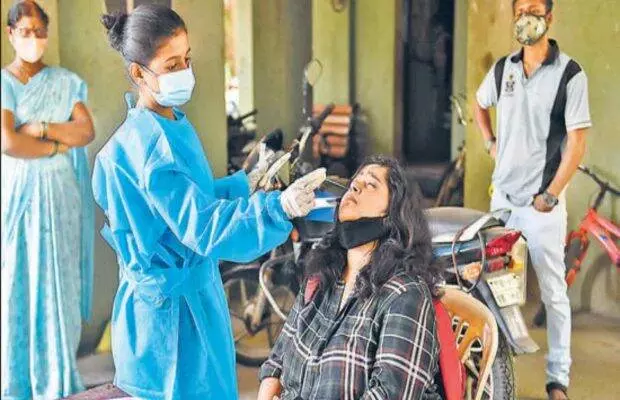
ICMR studies focus on ‘sudden deaths’ of young people in post-Covid world
ICMR tries to understand whether any physiological changes took place in those young victims which could have triggered their sudden deaths

The Indian Council of Medical Research (ICMR) is conducting two studies to understand the reason behind “sudden deaths” of young people in the post-Covid world, Dr Rajiv Bahl, the director-general of India’s apex medical research body, has told a media channel.
Dr Bahl said they are looking into deaths in the 18–45 age group. “We are looking at sudden deaths with no reasons,” he told News18. He was speaking on the sidelines of the WHO Global Traditional Medicine Summit in Gandhinagar, Gujarat.
The ICMR has so far studied 50 autopsy reports at the All-India Institute of Medical Sciences (AIIMS) in New Delhi and aims to cover some 100 more over the next few months. “These studies will help us understand the repercussions of the outbreak of Covid-19, if any, and may help prevent other deaths,” he told News18.
The ICMR is trying to understand whether any physiological changes took place in those young victims which could have triggered their sudden deaths in the post-Covid world. Dr Bahl explained that any patterns — e.g., several deaths due to sudden heart or lung failure — might help them make some associations. “We are trying to understand the reasons or differences when we compare the results of these autopsies to those in previous years or pre-Covid years,” he said.
The second study
The ICMR is also conducting a case control study, in which it is using the data of sudden deaths over the past year in the 18–45 age group. It has been sourcing data from 40 centres countrywide, which have followed up with Covid patients for a year after discharge and have recorded data regarding their admissions, discharge, and deaths.
“We are interviewing the families to understand the possible reasons behind the deaths,” Dr Bahl told News18.
The study also focuses on those who survived within the same neighbourhood as those who died. They are acting as the control group for comparison. Dr Bahl explained that from the same neighbourhood, they are interviewing people with a similar profile, e.g., same gender, age, and living in the same area. Their diet, tobacco use, lifestyle, Covid history, vaccination, and family medical history are also being studied.
“It’s an important technique for finding risk factor association,” he said, adding that the ICMR researchers are going from home to home to do the study. The aim is to figure out the risk factors that might have led to death after contracting Covid.
“We need to understand that many things changed during Covid-19. Apart from post-Covid conditions, there are numerous changes that we have introduced in our lifestyle and diet during and after Covid,” Dr Bahl added.
